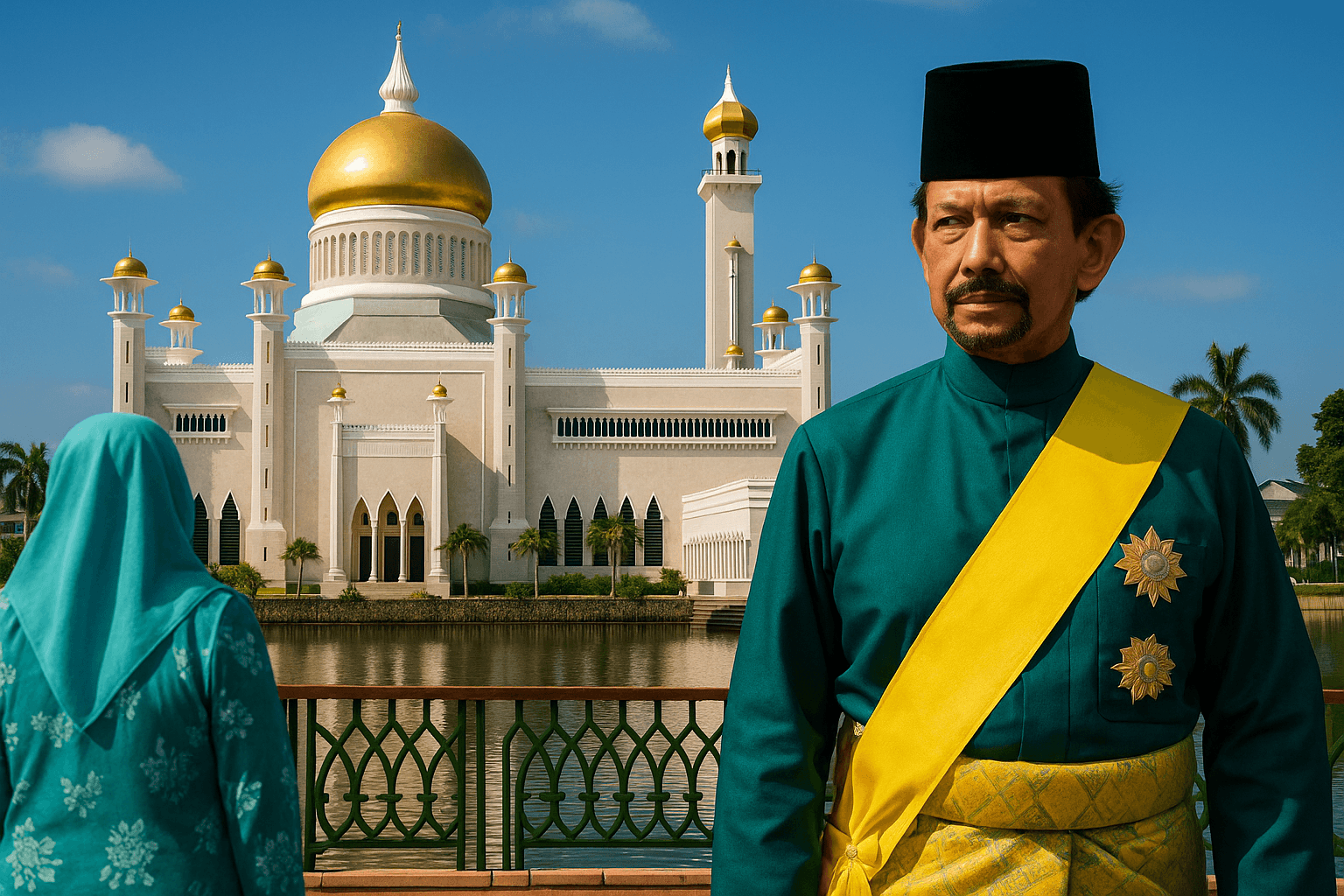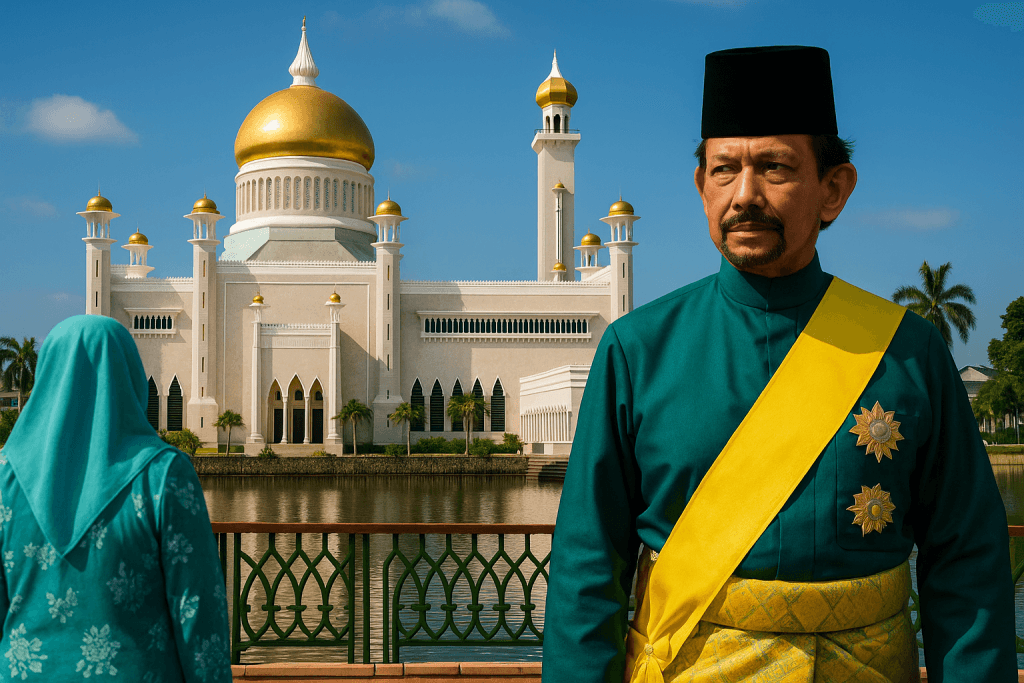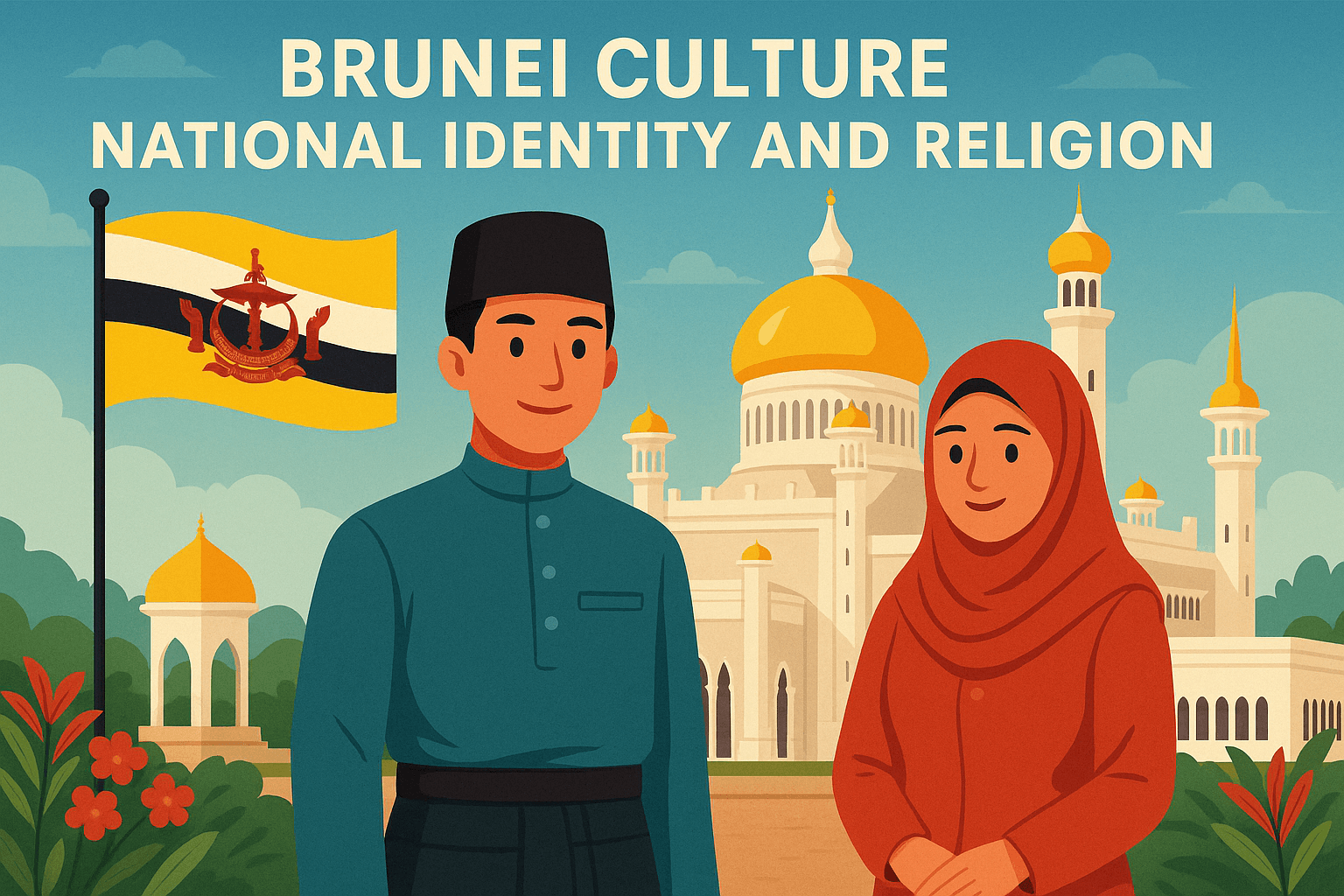In the heart of Southeast Asia lies a small yet deeply significant nation known for its wealth, stability, and cultural identity—Brunei Darussalam. At the center of its identity stands the philosophy of the Malay Islamic Monarchy: The Core of Brunei Culture, a guiding principle that influences governance, tradition, social order, and national unity. This distinctive framework, often abbreviated locally as MIB (Melayu Islam Beraja), is not simply a political doctrine; it is a cultural philosophy that binds together Malay heritage, Islamic faith, and royal leadership into a harmonious system that defines what it means to be Bruneian.
The Malay Islamic Monarchy: The Core of Brunei Culture represents continuity between the past and the present, blending centuries of royal traditions with the timeless principles of Islam. It is also a living expression of how culture, religion, and monarchy can form a cohesive social framework that nurtures identity, pride, and unity.
In this extensive exploration, we will delve into the origins, values, social expressions, and modern adaptations of the Malay Islamic Monarchy: The Core of Brunei Culture, showing how it permeates everyday life, national policy, and cultural consciousness.
Historical Roots of Malay Islamic Monarchy
The roots of the Malay Islamic Monarchy: The Core of Brunei Culture trace back to the early Malay kingdoms, where traditional monarchy was already central to governance. When Islam arrived in the 14th century, it merged with Malay customs, gradually shaping a governance system deeply grounded in Islamic principles yet reflective of local traditions.
Brunei’s sultans embraced Islam not merely as a faith but as a guiding principle for governance. Over time, this integration solidified into a philosophy that upheld:
Malay traditions as the cultural foundation
Islam as the spiritual compass
Monarchy as the political leadership
This triad has continued for centuries, offering stability, legitimacy, and continuity. Unlike other Southeast Asian nations that underwent colonial transformations, Brunei preserved this integrated system, allowing the Malay Islamic Monarchy: The Core of Brunei Culture to remain a living heritage rather than a relic of history.
The Philosophy of Malay, Islam, and Monarchy
At its core, the Malay Islamic Monarchy: The Core of Brunei Culture rests on three interdependent pillars:
1. Malay Identity
Malay heritage represents language, customs, arts, and social etiquette. It ensures that the Bruneian people maintain a strong cultural identity rooted in regional traditions.
2. Islamic Faith
Islam provides the spiritual framework. From law to education, Islam guides ethical values, moral conduct, and community life. It anchors the nation in a faith-based worldview that emphasizes justice, compassion, and accountability.
3. Monarchical Leadership
The monarchy serves as the symbol of unity, stability, and continuity. The Sultan is regarded not only as a political leader but also as a protector of faith and tradition.
The synergy of these three elements makes the Malay Islamic Monarchy: The Core of Brunei Culture a distinctive cultural philosophy, one that is rarely replicated elsewhere in the modern world.
Malay Heritage in Brunei’s Cultural Identity
The Malay element of the Malay Islamic Monarchy: The Core of Brunei Culture preserves the indigenous traditions that make Brunei unique. From the Malay language as the national language to adat istiadat (customs and traditions) that govern ceremonies, this cultural foundation is visible everywhere.
Language: Malay serves as both a daily communication tool and a symbol of heritage.
Customs: Weddings, festivals, and royal ceremonies follow traditional Malay etiquette.
Arts and Literature: Traditional dances like Adai Adai and literary forms like Syair strengthen national identity.
Dress: The Baju Kurung and Songkok represent Malay dignity and cultural pride.
Through these expressions, Malay traditions anchor the people to their history, ensuring that modernization does not erode cultural identity.
Islam as the Spiritual Compass
The Islamic component of the Malay Islamic Monarchy: The Core of Brunei Culture is not confined to religious rituals. It shapes governance, education, legal systems, and social conduct.
Sharia Principles: Brunei’s legal system integrates Islamic law into national governance.
Education: Schools emphasize religious studies alongside modern education.
Community Life: Mosques serve as centers of worship, community gathering, and learning.
Social Ethics: Principles of modesty, generosity, and compassion shape interpersonal relations.
Islam ensures that modernization in Brunei proceeds without abandoning spiritual values.
The Monarchy as the Pillar of Stability
The royal institution is the backbone of the Malay Islamic Monarchy: The Core of Brunei Culture. The Sultan of Brunei represents authority, continuity, and unity. Unlike symbolic monarchies in other nations, the Bruneian monarchy plays an active role in governance, ensuring policies align with cultural and religious principles.
The monarchy fosters national pride and acts as a mediator between tradition and modernity. Through royal patronage of arts, education, and welfare, the monarchy reinforces its position as the guardian of Brunei’s unique cultural philosophy.
Social Expressions of Malay Islamic Monarchy
The Malay Islamic Monarchy: The Core of Brunei Culture is not limited to theory; it manifests in visible, everyday practices:
National Ceremonies: Royal birthdays, religious festivals, and national events reflect the blend of Malay customs, Islamic rituals, and monarchical traditions.
Architecture: The Sultan Omar Ali Saifuddien Mosque stands as a symbol of faith and monarchy. Palaces and traditional Malay houses highlight heritage.
Education System: Curriculum reflects Islamic teachings, Malay culture, and loyalty to the monarchy.
Cultural Policies: Government policies promote traditional attire, arts, and Islamic values in public life.
Malay Islamic Monarchy and National Unity
The Malay Islamic Monarchy: The Core of Brunei Culture also serves as a tool for unity in a multicultural society. While Brunei is predominantly Malay-Muslim, it is also home to Chinese, Indian, and indigenous groups. The philosophy provides a national framework that integrates diversity while prioritizing a unifying identity.
By emphasizing shared values of respect, faith, and loyalty, the Malay Islamic Monarchy: The Core of Brunei Culture helps minimize ethnic divides and strengthen cohesion.
Education and Transmission of Values
Education is central in transmitting the Malay Islamic Monarchy: The Core of Brunei Culture to future generations. From primary schools to universities, students are taught to respect Malay heritage, practice Islamic values, and honor the monarchy.
Religious education is compulsory, ensuring that faith and ethics remain integral to knowledge. National Service and community programs further instill loyalty, responsibility, and cultural pride.
The Global Perception of Malay Islamic Monarchy
Internationally, the Malay Islamic Monarchy: The Core of Brunei Culture positions Brunei as a nation that balances tradition with modern governance. It is admired for preserving cultural identity while engaging with global trade, diplomacy, and education.
Brunei’s system showcases a unique model of cultural preservation, offering insights into how nations can modernize without abandoning heritage.
Malay Islamic Monarchy in Modern Governance
While rooted in tradition, the Malay Islamic Monarchy: The Core of Brunei Culture adapts to contemporary needs. National policies on technology, education, and economics are framed within this philosophy.
Digitalization: Initiatives encourage technological adoption without compromising values.
Sustainability: Policies align with Islamic principles of stewardship.
Global Diplomacy: Brunei represents itself as a peaceful nation rooted in cultural integrity.
This adaptability ensures that the Malay Islamic Monarchy: The Core of Brunei Culture remains relevant in the modern era.
Criticisms and Challenges
While the Malay Islamic Monarchy: The Core of Brunei Culture is celebrated, it also faces challenges in a globalized world:
Pressure to modernize while preserving traditions
Navigating global perceptions of Islamic governance
Balancing multiculturalism with a dominant cultural framework
Despite these challenges, Brunei continues to uphold this philosophy, emphasizing its role as the nation’s cultural compass.
The Enduring Legacy
Ultimately, the Malay Islamic Monarchy: The Core of Brunei Culture is more than a political ideology; it is the living soul of the nation. By combining Malay traditions, Islamic values, and monarchical leadership, Brunei preserves its unique identity in a rapidly changing world.
This legacy is visible in every aspect of life—from education to architecture, governance to daily etiquette. It is a philosophy that nurtures unity, guides modernization, and ensures that Brunei remains true to itself.
Conclusion
The Malay Islamic Monarchy: The Core of Brunei Culture is a cultural philosophy that defines Brunei’s identity, governance, and way of life. By harmonizing Malay traditions, Islamic principles, and the monarchy, it creates a framework that is both timeless and adaptive.
In a world where globalization often erodes cultural uniqueness, Brunei demonstrates how a nation can preserve its heritage while engaging with modernity. The Malay Islamic Monarchy: The Core of Brunei Culture remains not only the foundation of Bruneian society but also a beacon of cultural integrity for the world to recognize.


